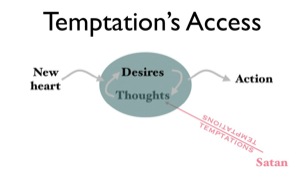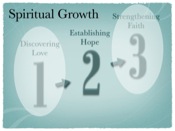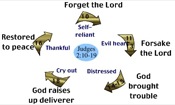
Great Friendship & Horrible Jealousy
1 Samuel 18:8-9
The Bible Teaching Commentary
Paul J. Bucknell
Friendships 1 Sam 18:1-4 | Jealousy 1 Sam 18:5-9 | Anger 1 Sam 18:8-9
Plot #1 1 Sam 18:10-16 | Plot #2 1 Sam 18:17-30
1 Samuel 18 Podcast mp3
Purpose: 1 Samuel 18:8-9 takes the former section on jealous one step further. If jealousy is not immediately resolved, anger develops. Embedded in this anger is a great sense of hatred and delusion. This is part 3 of 5 in 1 Samuel 18's mini-series between Saul and David called Great Friendship and Horrible Jealousy.
C) Jealousy Fosters Anger (1 Samuel 18: 8-9)
Then Saul became very angry, for this saying displeased him; and he said, “They have ascribed to David ten thousands, but to me they have ascribed thousands. Now what more can he have but the kingdom?” And Saul looked at David with suspicion from that day on” (1 Samuel 18:8-9).
The author is very careful to note the source of Saul’s anger. That saying, “And David his ten thousands” displeased him. Someone around his house or an advisor probably heard him say, “They have ascribed to David ten thousands, but to me they have ascribed thousands.
Now what more can he have but the kingdom?” We are right to assume that Samuel’s words about having the kingdom torn from him came to his mind. All of a sudden it clicked in his mind. David was the one to replace him!
Sometimes we just accept fate as it is stated, but we should remember that Saul could have turned aside from his pride and humbled himself. Saul just did not get it. Instead he allowed a jealous spirit to wrongly interpret David’s motive. As we read on, we find David’s unpretentious life.
What famous general do you know of would go and play the lyre? David showed no signs of exalting himself. These are things that Saul read into David’s life. This is the distortion that occurs when jealousy unfurls its wings in one’s soul (see diagram below).
David from this point on became a marked man. Saul was out to kill him. In great anger he silently planned to exterminate this threat to his throne.
-
Was Saul envious of David’s success or jealous of losing his own throne?
-
What things might you be afraid of losing to more capable people? How do you handle this?
 Check out our Digital Old Testament Library for a huge collection of resources on 1 Samuel and all of the Old Testament!
Check out our Digital Old Testament Library for a huge collection of resources on 1 Samuel and all of the Old Testament!
Anger and the evil spirit
“Then Saul became very angry, for this saying displeased him; and he said, “They have ascribed to David ten thousands, but to me they have ascribed thousands. Now what more can he have but the kingdom?” And Saul looked at David with suspicion from that day on” (1 Samuel 18:8-9).
Some would dismiss the connection between the evil spirit and anger but that would be foolish. Maybe they would do this because they do not believe in evil spirits. From 1 Samuel 18:10 we find that at certain times of violent anger the evil spirit is actively playing a role.
Other questions are not clear from this passage but very important to think upon.
-
What role does the evil spirit play in anger? How, for example, did it influence Saul?
-
At what point does the evil spirit begin to influence a person in his anger?
-
How can I escape the influence of the evil spirit in times of my anger?
Let me suggest a way to think through the role of the evil spirit in a time of anger. Perhaps it is not always this way, but the evil spirit does seek such opportunities and so he would regularly consider himself ‘invited’ when he sees an opening. It is much like the way a person automatically starts looking for an open seat on a crowed bus.
The evil spirit is looking for opportunities to deceive and seize control of a person’s life. When a person gets in a certain state of mind and heart, the evil spirit has access into his life.
What does the evil spirit do? It is clear from Jesus’ words that the evil spirit is not the source of the hatred or bitterness. That springs from the heart. We need to take responsibility for our jealous fits.
“For from within, out of the heart of men, proceed the evil thoughts, fornications, thefts, murders, adulteries, deeds of coveting and wickedness, as well as deceit, sensuality, envy, slander, pride and foolishness. All these evil things proceed from within and defile the man” (Mark 7:21-23).
The evil spirit influences the mind by bringing in thoughts and steering situations so that we would give further heed to our raging anger within. He would stir us up by inserting insinuating phrases in our mind. “You aren’t going to let him get away with that, are you?” “What are you a fool? Don’t just let him steal your kingdom.” “Are you not king? Deal with that imp!”
Anger causes our evaluative abilities to stop properly working and so an angry person is much more able to be susceptible (like and open seat on the bus) to the suggestions of the evil spirit. The evil spirit’s suggestive voice makes sense at that particular moment.
Temptation sounds sweet because it curls about our inner evil desires. If we would evaluate the action, we would discover that David really did not have that intention of stealing Saul’s kingdom. But Saul harbored a wrong thought through which the evil spirit could use the rest of his life. “Saul looked at David with suspicion from that day on” (1 Samuel 18:9).
Believers can be influenced by the evil spirits. They go where there is a seed of bitterness in a person’s heart. If we, for example, have bitterness from what our parents did to us, then we are open to further onslaughts from the evil one. God protects us by His rules. If we just obeyed the Lord and honored our parents, we would be protected. Bitterness, however, is a sign of rebellion and disrespect.
We might go far from our parents. They might even die. But that seed of bitterness still is a place where the evil spirit can and will use to cause distress in our souls and detrimentally affect how we deal with those around us with whom we disagree.
We wrongly assess the place of the work of the evil spirit by saying a person can or cannot be possessed by the evil spirit. We should instead live in obedience and then be protected from the evil spirit. Yes, there still will be temptation, but the closer to God, the easier it will be to pick out the temptations by which he is subtly leading us.
The more influence, the more we will tend to do wrong and carry out his acts. In Saul’s case, we find that the evil spirit could and would at certain times bring a greater influence upon Saul. My guess is that when Saul gave into a false conclusion about David, then he would allow his jealousy grab a greater hold on him so that he would even legitimize murder in his heart.
If we find ourselves having extreme anger and bitterness, then there is probably some seed of an unforgiving spirit or like in Saul’s case he believed something wrong about David (which brought bitterness).
In Saul’s case he concluded David wanted the kingdom and became extremely jealous. David was not thinking that way (1 Samuel 18:23). He was not of royal blood. Even if David had such intentions, Saul would need to seek the Lord for help rather than allow some jealousy run his life.
-
What place does the evil spirit have in anger? Slow-burning anger? Violent anger?
-
When was the last time you got angry? Why?
Continue -> D) “Whoops” Plot #1: Saul’s Two Pretend Accidents (1 Samuel 18:10-16)
Other BFF relevant reading
- Check our 'Reaching Beyond Mediocrity' in our store.
info@foundationsforfreedom.net
Scriptures typically quoted from the New American Standard Bible unless noted:
(C) Copyright The Lockman Foundation 1988

















